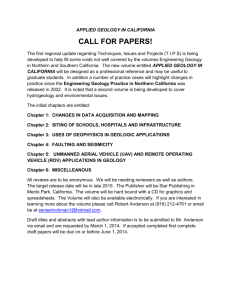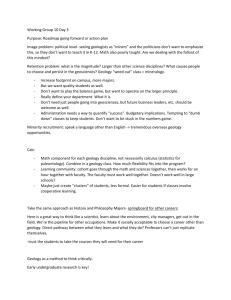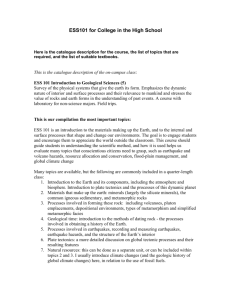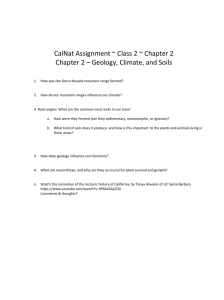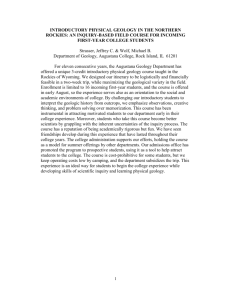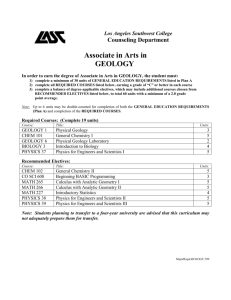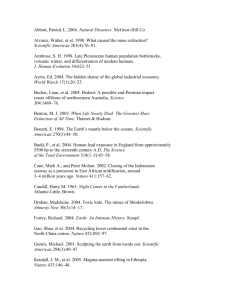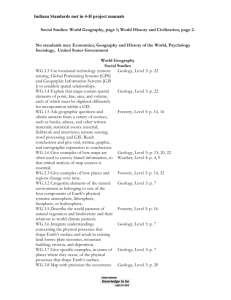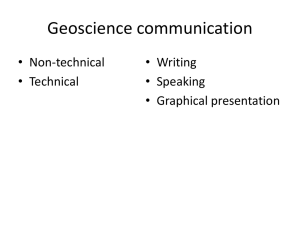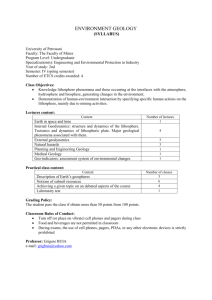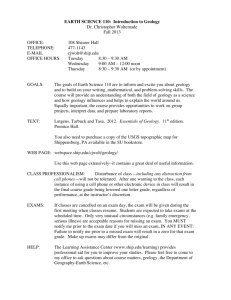Class meetings:
advertisement
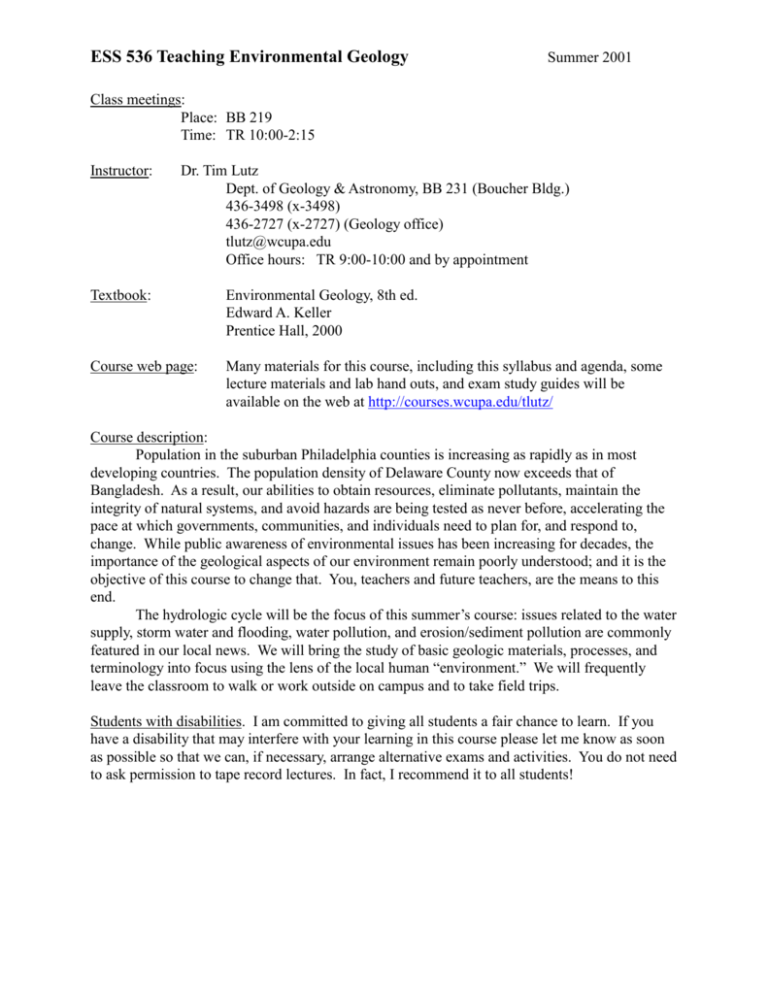
ESS 536 Teaching Environmental Geology Summer 2001 Class meetings: Place: BB 219 Time: TR 10:00-2:15 Instructor: Dr. Tim Lutz Dept. of Geology & Astronomy, BB 231 (Boucher Bldg.) 436-3498 (x-3498) 436-2727 (x-2727) (Geology office) tlutz@wcupa.edu Office hours: TR 9:00-10:00 and by appointment Textbook: Environmental Geology, 8th ed. Edward A. Keller Prentice Hall, 2000 Course web page: Many materials for this course, including this syllabus and agenda, some lecture materials and lab hand outs, and exam study guides will be available on the web at http://courses.wcupa.edu/tlutz/ Course description: Population in the suburban Philadelphia counties is increasing as rapidly as in most developing countries. The population density of Delaware County now exceeds that of Bangladesh. As a result, our abilities to obtain resources, eliminate pollutants, maintain the integrity of natural systems, and avoid hazards are being tested as never before, accelerating the pace at which governments, communities, and individuals need to plan for, and respond to, change. While public awareness of environmental issues has been increasing for decades, the importance of the geological aspects of our environment remain poorly understood; and it is the objective of this course to change that. You, teachers and future teachers, are the means to this end. The hydrologic cycle will be the focus of this summer’s course: issues related to the water supply, storm water and flooding, water pollution, and erosion/sediment pollution are commonly featured in our local news. We will bring the study of basic geologic materials, processes, and terminology into focus using the lens of the local human “environment.” We will frequently leave the classroom to walk or work outside on campus and to take field trips. Students with disabilities. I am committed to giving all students a fair chance to learn. If you have a disability that may interfere with your learning in this course please let me know as soon as possible so that we can, if necessary, arrange alternative exams and activities. You do not need to ask permission to tape record lectures. In fact, I recommend it to all students! ESS 536 Teaching Environmental Geology Summer 2001 Required course components: Field trip reports (min. 3) Field exercises (min 3) Worksheets (min. 7) Participation/attendance Agenda development criteria: Content: Should interest students Focus on emerging issues Emphasize basic processes Local relevance Skills: Ability to recognize pedagogically valuable features in our environment Ability to find, organize, present, and interpret environmental data Ability to localize the general Ability to convey environmental relationships through visualization Preliminary agenda Week 1. Environmental geology hydrologic cycle watersheds streams Reading: 1 (all), 5.1, 10.1, 10.2 Week 2. Groundwater Reading: 10.4 Surface water: water flow, erosion, and sediment transport Reading: 3.7, 3.8, 3.9, 10.3 Week 3. Floods Reading: 5 Week 4. Water resources Reading: 10.5-10.9 Week 5. Water pollution Reading: 11
